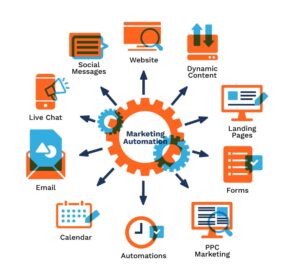The Catalyst Blog
Level up your marketing game: Get inspired by actionable marketing insights.

LinkedIn B2B Best Practices – A Primer
A primer on LinkedIn B2B best practices.
Performance

The Untapped Weapon: Why User Experience Design is Essential for Marketing Teams
Compelling content and targeted advertising are marketing must-haves….
Design

Building Brand Consistency and Efficiency: Design Systems for B2B Marketing Websites
In today’s fast-paced marketing landscape, staying ahead of the curve…
Design

Why Website Security Should Be Your Top Priority
The internet is an amazing tool for connection, commerce, and…
Security

Web Performance: The Key to Unlocking Marketing Potential
In today’s lightning-fast digital landscape, a mere second of delay in…
Performance

Clean Website Analytics: Power Up Your Decisions
In today’s digital world, your website is your virtual storefront. Just…
Analytics

Digital Marketing Strategy Audit Planning
Digital marketing strategy audits help companies identify waste,…
Performance

Digital Marketing Audit Strategies for CMOs
CMOs have more responsibilities than ever.
Performance